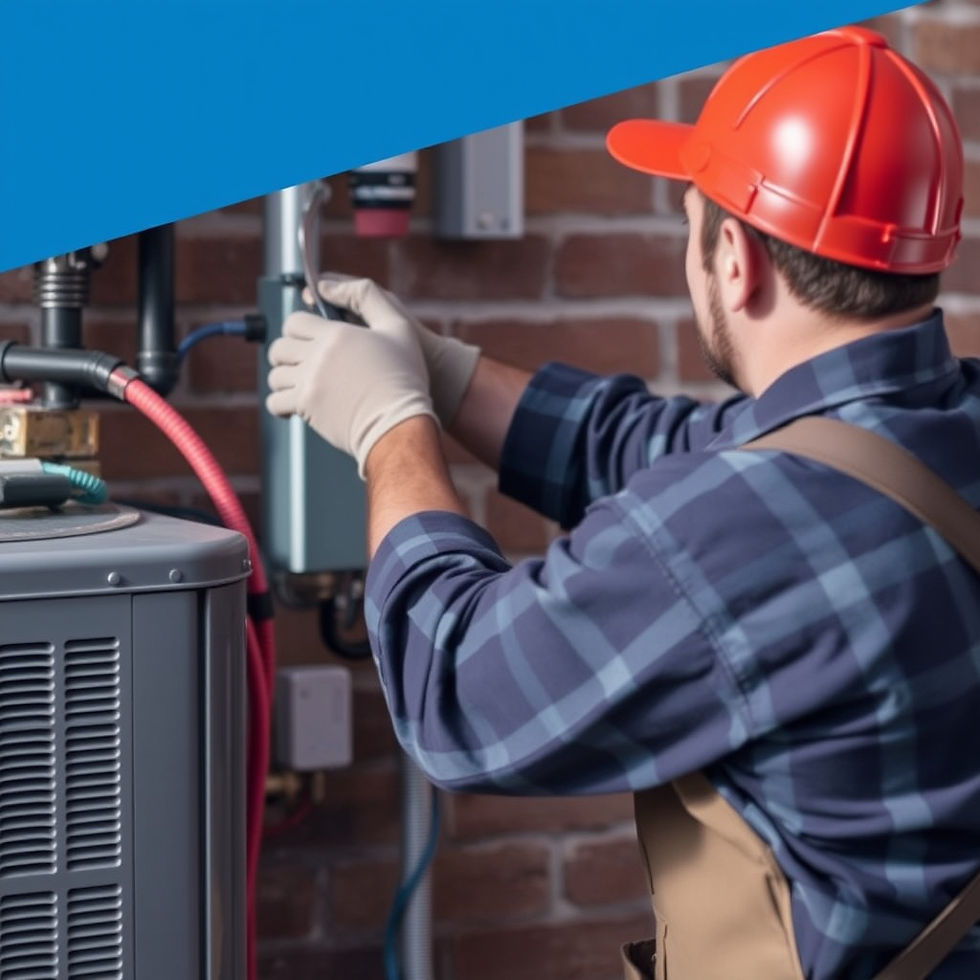Extend the Lifespan of Your HVAC Unit
- dmaling9
- Aug 27, 2024
- 4 min read

Your HVAC system is a significant investment in your home's comfort, energy efficiency, and overall well-being. With Georgia's unpredictable weather, ensuring that your HVAC unit operates at peak performance is essential.
However, replacing an HVAC system can be a costly endeavor, which makes proper maintenance and care all the more crucial. By adopting a few simple yet effective practices, you can extend the lifespan of your HVAC unit, minimize the need for expensive repairs, and keep your home comfortable throughout the year.
1. Prioritize Regular Maintenance
Why It Matters: Regular maintenance is the cornerstone of a long-lasting HVAC system. Routine inspections and upkeep prevent unexpected breakdowns, enhance efficiency, and ensure that your system is operating at its best.
What to Do:
- Schedule Professional Inspections: At least once a year, have a qualified HVAC technician thoroughly inspect your system. During these visits, technicians can identify potential issues, clean critical components, and ensure everything is functioning correctly. If you don’t already have a trusted HVAC professional, reach out to us—we can enroll you in our comprehensive maintenance plan.
- Change Filters: Air filters should be replaced every 1-6 months, depending on your system’s usage and the type of filter you use. Clogged or dirty filters restrict airflow, causing your HVAC system to work harder than necessary, which can lead to premature wear and tear.
- Clean Coils and Fins: The evaporator and condenser coils play a vital role in your HVAC system’s performance. Regularly clean these coils to prevent dirt buildup, which can reduce efficiency. Similarly, ensure the fins on the condenser unit are straight and unobstructed to allow for proper airflow.
2. Keep the Area Around the Unit Clear
Why It Matters: Obstructions around your HVAC unit can lead to inefficient operation and even cause the system to overheat, leading to potential damage.
What to Do:
- Clear Debris: Regularly remove leaves, grass clippings, and other debris from around the outdoor unit. This not only improves airflow but also protects your unit from potential damage.
- Maintain Landscaping: Trim any bushes, plants, or trees near the unit to ensure there is ample space for proper ventilation. Keeping the area around your HVAC unit clear allows it to operate more efficiently and reduces the risk of overheating.
3. Ensure Proper Insulation
Why It Matters: Proper insulation is key to maintaining consistent indoor temperatures and reducing the workload on your HVAC system, which can significantly extend its lifespan.
What to Do:-
-Insulate Ductwork: Ductwork, especially in unconditioned spaces like attics or basements, should be properly insulated to prevent energy loss. Well-insulated ducts help your system deliver warm or cool air more efficiently.
- Seal Leaks: Check for and seal any leaks in windows, doors, and other areas where air might escape. Reducing air leakage decreases the demand on your HVAC system, helping it maintain comfortable indoor temperatures with less effort.
4. Optimize Thermostat Settings
Why It Matters: Efficient thermostat settings can prevent unnecessary strain on your HVAC system, reducing wear and tear while keeping your home comfortable.
What to Do:
- Use a Programmable Thermostat: Programmable thermostats allow you to set temperature schedules based on when you’re home or away. This avoids unnecessary heating or cooling, reducing energy consumption and extending the life of your HVAC unit.
- Avoid Extreme Temperature Changes: Set your thermostat to moderate temperatures that don’t force your system to work harder than necessary. Extreme temperature changes can accelerate wear and tear on your HVAC system.
5. Check and Maintain the Condenser Unit
Why It Matters: The condenser unit is located outside and is exposed to the elements, making it susceptible to dirt, debris, and damage that can affect its performance.
What to Do:
- Keep the Unit Clean: Regularly clean the area around the condenser unit, and use a garden hose to wash dirt off the fins. Keeping the condenser clean helps it operate more efficiently.
- Inspect the Unit: Regularly check for signs of wear or damage. If you notice anything unusual, contact a professional for a thorough inspection. Addressing issues early can prevent more significant problems down the road.
6. Address Issues Promptly
Why It Matters: Small problems can escalate into major repairs if not addressed promptly. Being proactive can save you time, money, and stress.
What to Do:
- Listen for Unusual Noises: Rattling, buzzing, or grinding sounds can indicate mechanical issues. If you hear any unusual noises coming from your HVAC unit, contact a professional immediately to diagnose and fix the problem.
- Monitor Performance: If you notice inconsistent temperatures or a sudden spike in energy bills, it could be a sign that your HVAC system is struggling. Don’t wait—have a professional check the system as soon as possible to prevent further damage.
7. Ensure Proper Ventilation
Why It Matters: Adequate ventilation is crucial for your HVAC system’s efficiency and the overall air quality in your home.
What to Do:
- Check Vent Covers: Ensure that air vents are not blocked by furniture, curtains, or other objects. Proper airflow is essential for system efficiency and effective temperature control.
- Maintain Humidity Levels: Use dehumidifiers or humidifiers as needed to maintain optimal indoor humidity levels. Excess moisture can affect your HVAC system's performance and lead to issues such as mold growth or poor indoor air quality.
Extending the life of your HVAC unit is all about regular maintenance, attentive care, and timely interventions. By following these essential tips, you can ensure that your HVAC system remains reliable, efficient, and effective for years to come. A little effort in maintaining your unit can go a long way in keeping your home comfortable and your HVAC system running smoothly.




Comments